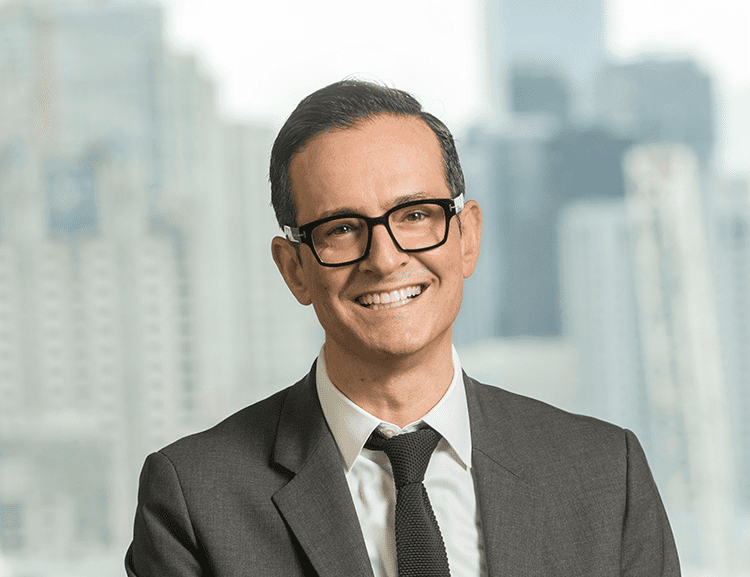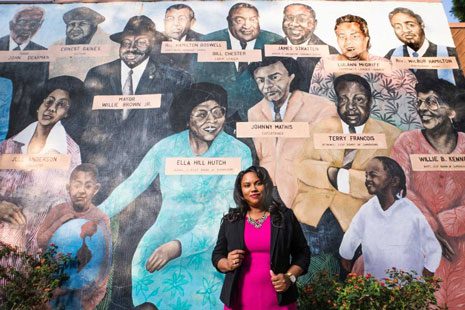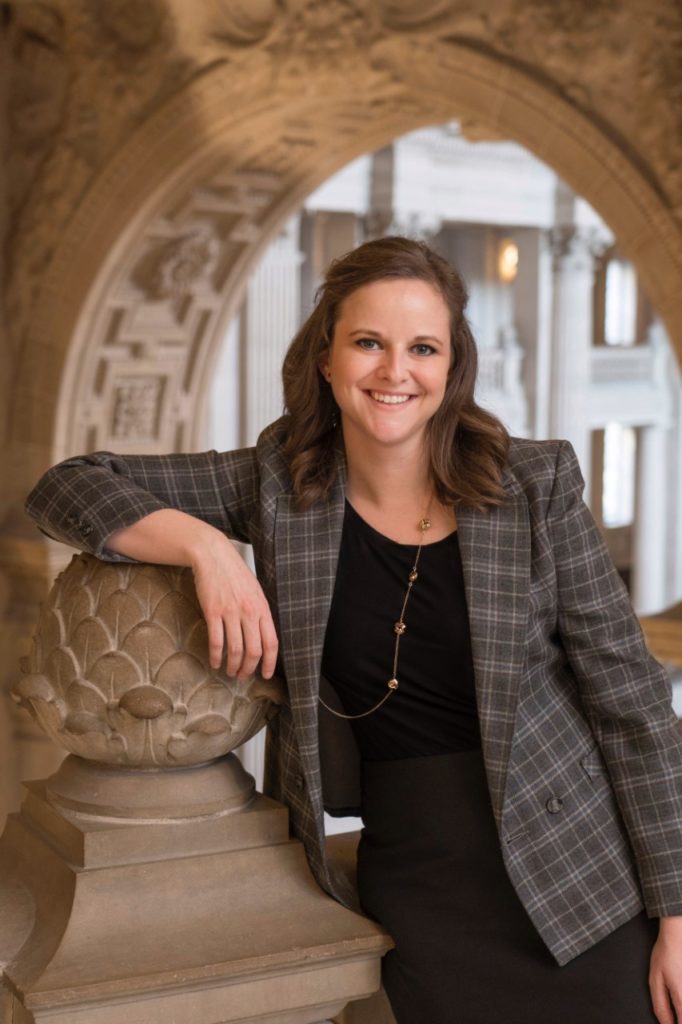Graduates Triumph on California Bar
Class of 2019 pass rate jumps by 20 points over July 2018, following adoption of innovative teaching methods

“We teach differently now,” Ratner said. “From the student vantage point, it’s much more high touch than the traditional Langdellian model of legal education.” -Academic Dean Morris Ratner
UC Law SF graduates who took the California Bar Exam for the first time in July 2019 posted a pass rate of 80%, well above the statewide average for ABA-accredited law schools of 71% and neck-and-neck with other top schools. With one of the largest year-over-year increases among all California law schools, UC Law SF tied at No. 7 for the highest pass rate, alongside UC Irvine and Loyola Law in Los Angeles.
All UC Law SF’ May 2019 graduates who finished in the top quarter of their class passed the exam on their first attempt, as did over 95% of the graduates in the top half of the class. Graduates from the college’s Legal Education and Opportunity Program (LEOP)—which makes legal education accessible to students who have overcome significant adversity—had a first-time pass rate of 75.8%. The LEOP graduate pass rate was also above the statewide average and a high-water mark for the program, which has benefitted from the leadership of its new director and LEOP alumna Elizabeth McGriff ’96.
The college’s dramatic jump substantially exceeds gains at other ABA-accredited law schools.
While the average first-time pass rate for all ABA-accredited schools in California increased by seven points from July 2018 to July 2019, UC Law SF’ first-time pass rate of 80% represents a nearly 20 percentage point increase from the previous year and a nearly 30% increase since July 2016 for the college.
Bar exam success follows adoption of innovative teaching methods.
“I attribute this year’s success first and foremost to our Class of 2019 graduates, whose hard work paid off,” said Academic Dean Morris Ratner. “But I also credit widespread adoption of innovative teaching methods by our faculty, including active learning, formative assessment with individualized feedback, and a focus on legal writing and analytical skills across the curriculum.”
Charged by Chancellor & Dean David Faigman with spearheading initiatives to ensure students’ academic success, Ratner led efforts to institute important changes.

“We are thrilled with the excellent bar passage outcomes for LEOP. We endeavor to put our incredible students in their optimal learning zone through a high-touch program that supports them to success. We look forward to continuing our efforts to drive this achievement.” -Elizabeth McGriff ’96, Director of LEOP and Equity & Inclusion Advisor
“We teach differently now,” Ratner said. “From the student vantage point, it’s much more high touch than the traditional Langdellian model of legal education. Though our faculty includes some of the country’s most influential legal scholars, the culture at the law school was already student-focused. The faculty enthusiastically built upon a foundation of teaching excellence.”
One deeply engaged faculty member was Clinical Professor Mai Linh Spencer, winner of last year’s Rutter Award for Teaching Excellence, who led an Academic Discussion Group on Evidence and found a variety of ways to encourage her students to succeed. Hers was one of many discussion groups designed to deepen student skills and understanding.
Across the college, many productive research faculty adopted new teaching methods, including Professors of Law Jo Carrillo, John Crawford, Heather Field, Keith Hand, Emily Murphy, Dave Owen, Zach Price, Radhika Rao, Aaron Rappaport, Dorit Reiss, Naomi Roht-Arriaza, David Takacs, and Lois Weithorn.
Another important component of the school’s new approach was the creation of an Office for Academic Skills Instruction and Support (OASIS), headed by Assistant Dean Stefano Moscato and staffed by five full-time faculty members who specialize in the art and science of teaching. One of them, Jennifer Freeland, was voted Professor of the Year last year by the Associated Students of UC Law SF (ASUCH).
Another central figure is Academic and Professional Success Lecturer Margaret Greer ’15, who serves as Director of Bar Passage Support. Greer provides one-on-one bar exam advising, supplemental bar review sessions, and other bar prep programs and resources. She also teaches Critical Studies, a course that hones the legal writing and analysis skills necessary for success on the exam.

“In my third year, I took advantage of classes and workshops that previewed bar topics, reviewed bar-specific testing skills, and provided strategies for time and test management.” -Katie Gross ’19
Students, including Katie Gross, president of ASUCH, said they felt supported and prepared.
“I am proud of the incredible effort my classmates put into preparing for this exam,” said Gross ‘19, now a deputy district attorney with the Napa County District Attorney’s Office. “As I studied this past summer, I drew inspiration and motivation from the hard work I saw from my peers, whether that was through attending the BEST essay workshops on campus or through countless hours of writing practice essays, running through flashcards, and doing multiple-choice questions.”
Gross attributes her cohort’s success in large part to programs offered during and after the 3L year. “In my third year, I took advantage of classes and workshops that previewed bar topics, reviewed bar-specific testing skills, and provided strategies for time and test management,” she said. “Throughout the summer, I felt supported through the alumni and professor mentorship program and through continuous encouragement from Professor Stefano Moscato, Margaret Greer, and their team, plus the staff at Student Services and the UC Law SF community as a whole.”
Information on the bar exam results statewide can be found here. See additional media coverage of 2019 California bar passage rates here.